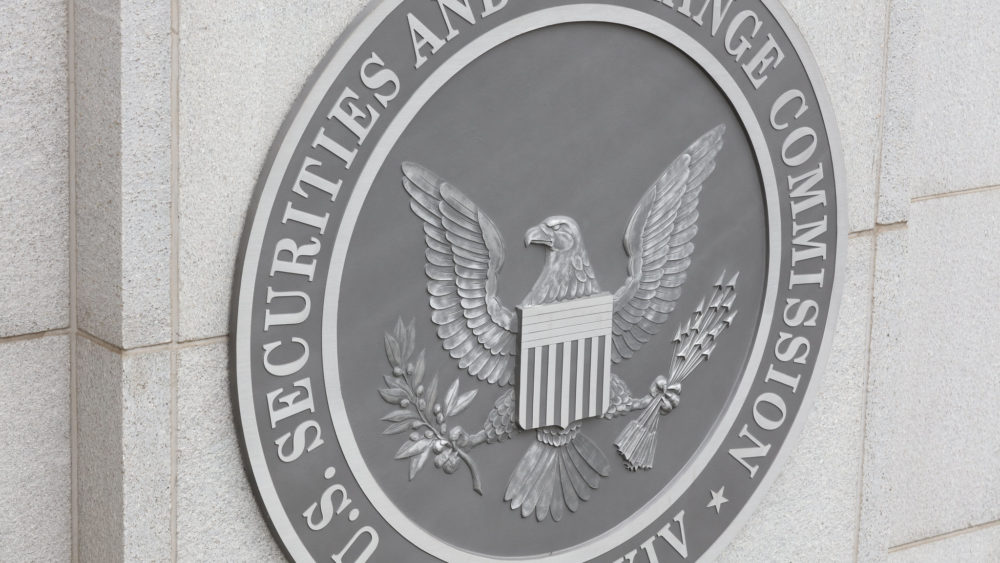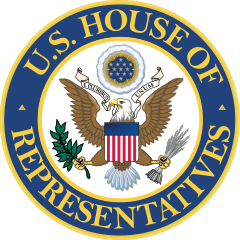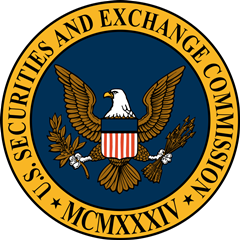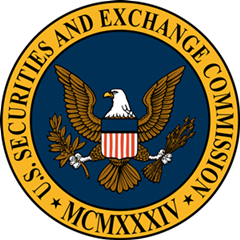June 20, 2019 •
SEC FINRA Pay-to-Play Rule Upheld by Federal Court

On June 18, a federal appellate court affirmed the legality of a Securities and Exchange Commission (SEC) pay-to-play rule. In New York Republican State Committee v. SEC, the U.S. Court of Appeals for the District of Columbia Circuit found the […]
On June 18, a federal appellate court affirmed the legality of a Securities and Exchange Commission (SEC) pay-to-play rule.
In New York Republican State Committee v. SEC, the U.S. Court of Appeals for the District of Columbia Circuit found the SEC’s Financial Industry Regulatory Authority (FINRA) Rule 2030 constitutional.
The rule prohibits a placement agent from accepting compensation for soliciting government business from certain candidates and elected officials within two years of having contributed to such an official’s electoral campaign or to the transition or inaugural expenses of a successful candidate.
The New York Republican State Committee and the Tennessee Republican Party had argued the SEC did not have authority to enact the rule, the order adopting the rule was arbitrary and capricious because there was insufficient evidence it was needed, and the rule violated the First Amendment of the Constitution of the United States.
While the court found the plaintiffs had standing, it ruled against all their arguments and upheld the rule.
February 11, 2019 •
The Corporate Political Disclosure Act of 2019 Introduced in U.S. Congress
On February 7, a bill was introduced in the U.S. House of Representatives to require publicly traded corporations to disclose all expenditures made for political activities. House Bill 1053, the Corporate Political Disclosure Act of 2019, would require publicly traded […]
 On February 7, a bill was introduced in the U.S. House of Representatives to require publicly traded corporations to disclose all expenditures made for political activities.
On February 7, a bill was introduced in the U.S. House of Representatives to require publicly traded corporations to disclose all expenditures made for political activities.
House Bill 1053, the Corporate Political Disclosure Act of 2019, would require publicly traded corporations to disclose political expenditures, through the Securities and Exchange Commission, to their shareholders and to the general public.
The requirement would include reporting dues or other payments to trade associations that are, or could reasonably be anticipated to be, used or transferred to another association or organization for use on political activities.
The legislation, brought by Rep. Salud Ortiz Carbajal, was originally introduced in the prior congressional session, but never made it out of the House Committee on Financial Services.
August 28, 2017 •
FINRA Proposes Pay-to-Play Rules for Capital Acquisition Brokers
The Financial Industry Regulatory Authority (FINRA) has filed a proposed rule change with the Securities and Exchange Commission (SEC) to expand its brand-new pay-to-play rules to cover capital acquisition brokers (CAB). FINRA Rule 2030, which took effect August 20, restricts […]
 The Financial Industry Regulatory Authority (FINRA) has filed a proposed rule change with the Securities and Exchange Commission (SEC) to expand its brand-new pay-to-play rules to cover capital acquisition brokers (CAB).
The Financial Industry Regulatory Authority (FINRA) has filed a proposed rule change with the Securities and Exchange Commission (SEC) to expand its brand-new pay-to-play rules to cover capital acquisition brokers (CAB).
FINRA Rule 2030, which took effect August 20, restricts contributions made to an official of a government entity being provided investment advisory services or being engaged to provide investment advisory services by certain parties. The rule applies to broker-dealers, placement agents, and covered associates acting on behalf of certain regulated investment advisors or soliciting a government entity to invest in certain pooled investment vehicles. FINRA Rule 4580, which took effect the same day, mandates certain record-keeping requirements concerning related contributions.
A firm meeting the statutory definition of a CAB and electing to be governed by the FINRA rule set would be subject to FINRA’s new pay-to-play rules under the proposal. Specifically, FINRA proposes the addition of rules providing all CABs be subject to FINRA Rules 2030 and 4580. If approved, the effective date will be no later than 30 days after FINRA’s announcement of the SEC’s approval.
September 3, 2015 •
MSRB Seeks Approval from SEC for Gift Rule Amendments
On September 2, the Municipal Securities Rulemaking Board (MSRB) requested approval from the Securities and Exchange Commission (SEC) for amendments to MSRB Rule G-20, a conflict-of-interest rule concerning gifts and gratuities. The proposed amendments include limiting gifts to $100 for […]
 On September 2, the Municipal Securities Rulemaking Board (MSRB) requested approval from the Securities and Exchange Commission (SEC) for amendments to MSRB Rule G-20, a conflict-of-interest rule concerning gifts and gratuities. The proposed amendments include limiting gifts to $100 for municipal advisors giving gifts to employees of entities engaged in municipal securities activities. The new rules for municipal advisors also would prohibit receiving reimbursement of entertainment expenses from the proceeds of an offering of municipal securities.
On September 2, the Municipal Securities Rulemaking Board (MSRB) requested approval from the Securities and Exchange Commission (SEC) for amendments to MSRB Rule G-20, a conflict-of-interest rule concerning gifts and gratuities. The proposed amendments include limiting gifts to $100 for municipal advisors giving gifts to employees of entities engaged in municipal securities activities. The new rules for municipal advisors also would prohibit receiving reimbursement of entertainment expenses from the proceeds of an offering of municipal securities.
“Amending the MSRB’s existing gifts rule would ensure common standards for dealers and municipal advisors that all operate in the municipal securities market,” said MSRB Executive Director Lynnette Kelly in a press release.
August 3, 2015 •
SEC Pay-To-Play Enforcement for Third Party Solicitations Delayed
On July 31, the Securities and Exchange Commission (SEC) was to begin enforcing pay-to-play rules under 17 C.F.R. §275.206(4)-5 for third party solicitations. However, on June 25, the SEC stated until there is an effective date of a Financial Industry […]
 On July 31, the Securities and Exchange Commission (SEC) was to begin enforcing pay-to-play rules under 17 C.F.R. §275.206(4)-5 for third party solicitations. However, on June 25, the SEC stated until there is an effective date of a Financial Industry Regulatory Authority (FINRA) pay-to-play rule or an effective date of a Municipal Securities Rulemaking Board (MSRB) pay-to-play rule, whichever is later, the Division of Investment Management would not recommend enforcement action to the SEC against an investment adviser or its covered associates under rule 206(4)-5(a)(2)(i) for the payment to any person to solicit a government entity for investment advisory services. Neither FINRA nor the MSRB have yet adopted pay-to-play rules.
On July 31, the Securities and Exchange Commission (SEC) was to begin enforcing pay-to-play rules under 17 C.F.R. §275.206(4)-5 for third party solicitations. However, on June 25, the SEC stated until there is an effective date of a Financial Industry Regulatory Authority (FINRA) pay-to-play rule or an effective date of a Municipal Securities Rulemaking Board (MSRB) pay-to-play rule, whichever is later, the Division of Investment Management would not recommend enforcement action to the SEC against an investment adviser or its covered associates under rule 206(4)-5(a)(2)(i) for the payment to any person to solicit a government entity for investment advisory services. Neither FINRA nor the MSRB have yet adopted pay-to-play rules.
Pay-to-play rules imposed by 17 C.F.R. §275.206(4)-5 apply to investment advisers and their covered associates who make contributions to officials of state and local government entities.
October 1, 2014 •
Court Challenge to SEC Pay-to-Play Rules Dismissed by Court
A suit filed by the Republican parties of New York and Tennessee challenging the Securities and Exchange Commission’s (SEC) Pay-to-Play rule has been dismissed by the U.S. District Court for the District of Columbia. The court held it did not […]
 A suit filed by the Republican parties of New York and Tennessee challenging the Securities and Exchange Commission’s (SEC) Pay-to-Play rule has been dismissed by the U.S. District Court for the District of Columbia. The court held it did not have jurisdiction and the proper court to hear the case is the D.C. Circuit Court of Appeals.
A suit filed by the Republican parties of New York and Tennessee challenging the Securities and Exchange Commission’s (SEC) Pay-to-Play rule has been dismissed by the U.S. District Court for the District of Columbia. The court held it did not have jurisdiction and the proper court to hear the case is the D.C. Circuit Court of Appeals.
The plaintiffs alleged SEC Rule 206(4)-5, which imposes restrictions upon investment advisors and their covered associates making contributions to officials of state and local government entities, violates the freedom of speech protections of the First Amendment. The suit also took the position the SEC does not have the authority to regulate campaign contributions.
August 13, 2014 •
State Republican Parties Challenge SEC Pay-to-Play Rule
The Republican parties of New York and Tennessee have filed suit in U.S. District Court for the District of Columbia challenging Securities and Exchange Commission (SEC) Rule 206(4)-5. The plaintiffs allege the rule, which imposes restrictions upon investment advisors and […]
 The Republican parties of New York and Tennessee have filed suit in U.S. District Court for the District of Columbia challenging Securities and Exchange Commission (SEC) Rule 206(4)-5. The plaintiffs allege the rule, which imposes restrictions upon investment advisors and their covered associates making contributions to officials of state and local government entities, violates the freedom of speech protections of the First Amendment.
The Republican parties of New York and Tennessee have filed suit in U.S. District Court for the District of Columbia challenging Securities and Exchange Commission (SEC) Rule 206(4)-5. The plaintiffs allege the rule, which imposes restrictions upon investment advisors and their covered associates making contributions to officials of state and local government entities, violates the freedom of speech protections of the First Amendment.
The suit also takes the position that the SEC does not have the authority to regulate campaign contributions.
If struck down, the elimination of the rule would make it easier for any state governor making a run for president to raise money from the financial sector.
June 25, 2014 •
SEC Charges Firm with Pay-to-Play Violation
For the first time, the U.S. Securities and Exchange Commission (SEC) has charged a firm with violations of its pay-to-play rules. On June 20, the SEC charged TL Ventures Inc., a private equity firm, with receiving advisory fees from the […]
 For the first time, the U.S. Securities and Exchange Commission (SEC) has charged a firm with violations of its pay-to-play rules. On June 20, the SEC charged TL Ventures Inc., a private equity firm, with receiving advisory fees from the pension funds of both Philadelphia and Pennsylvania after an associate of the firm had made campaign contributions in 2011 to the governor and a candidate for mayor.
For the first time, the U.S. Securities and Exchange Commission (SEC) has charged a firm with violations of its pay-to-play rules. On June 20, the SEC charged TL Ventures Inc., a private equity firm, with receiving advisory fees from the pension funds of both Philadelphia and Pennsylvania after an associate of the firm had made campaign contributions in 2011 to the governor and a candidate for mayor.
Federal regulations prohibit investment advisers and their covered associates who make contributions to officials of state and local government entities from providing compensatory advisory services for two years following a campaign contribution. TL Ventures Inc. has agreed to settle the charges by paying nearly $300,000.
June 18, 2012 •
SEC Delays Compliance Date for Pay-to-Play Rule
April 2013
 The Securities and Exchange Commission has extended the date advisers and third-party solicitors must comply with new pay-to-play rules until April 2013.
The Securities and Exchange Commission has extended the date advisers and third-party solicitors must comply with new pay-to-play rules until April 2013.
The Commission is extending the compliance date for the ban on third-party solicitation under rule 206(4)-5 of the Investment Advisers Act of 1940 in order to ensure an orderly transition for third-party solicitors and advisers and as well as to provide additional time to adjust compliance policies and procedures after the transition.
Rule 206(4)-5, the “Pay to Play Rule,” prohibits an investment adviser from providing advisory services for compensation to a government client for two years after the adviser or certain of its executives or covered associates make a contribution to elected officials or candidates.
The rule also prohibits an adviser and its covered associates from providing or agreeing to provide, directly or indirectly, payment to any third-party for a solicitation of advisory business from any government entity on behalf of such adviser, unless such third-party was an SEC-registered investment adviser or a registered broker or dealer subject to pay to play restrictions adopted by a registered national securities association.
More information can be found here.
March 14, 2011 •
SEC Investment Advisor Contribution Rule Effective Today
Compliance to Other Rules Starts September 13
 Securities and Exchange Commission Rule 206(4)-5, regarding political contributions to government entities from investment advisors, takes effect today. Rule 206(4)-5(a)(1) makes it unlawful for advisors of hedge funds, private equity funds, and certain other investments, to provide investment advisory services for compensation to a government entity within two years after a contribution to an official of the government entity is made by the investment adviser, a covered associate, or its PAC.
Securities and Exchange Commission Rule 206(4)-5, regarding political contributions to government entities from investment advisors, takes effect today. Rule 206(4)-5(a)(1) makes it unlawful for advisors of hedge funds, private equity funds, and certain other investments, to provide investment advisory services for compensation to a government entity within two years after a contribution to an official of the government entity is made by the investment adviser, a covered associate, or its PAC.
On September 13, addition rules take effect, including prohibiting third parties from soliciting government business, and regulating what investment pool advisers may do.
State and Federal Communications, Inc. provides research and consulting services for government relations professionals on lobbying laws, procurement lobbying laws, political contribution laws in the United States and Canada. Learn more by visiting stateandfed.com.


